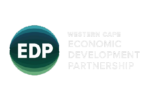Objectives and Impact
The water-energy-food (WEF) nexus has emerged as a framework for integrated resource management to mobilise synergies and mitigate trade-offs across domains and enhance sustainability and resilience. This is a crucially important endeavour in the city of Cape Town, which faces a triple exposure to interrelated water, energy and food crises. The city’s water supply is almost entirely dependent on catchment areas outside of the city boundaries, which are shared with other municipalities and agriculture in the Western Cape Province and face increasing water scarcity and pollution. The city’s overdependence on a centralised, poorly maintained, and coal-based energy system has led to load shedding and blackouts in the metropolitan area, and exacerbates pressure on water supply and food infrastructures. Moreover, food and nutrition security is endemic in low-income areas, while the surrounding region of Cape Town is characterised by highly water-dependent and export-oriented large-scale farms.
The project’s vision of success is a Cape Town better able to prevent, prepare for and adapt to acute shocks and chronic stresses including droughts, food crises, and infrastructure failures in a more inclusive and coordinated way through procedural innovations for managing complexity. A guiding premise is that a more systematic co-management of WEF systems relies on horizontal and vertical coordination across several policy sectors, policy levels and municipal jurisdictions. The project closely collaborates with societal partners to explore and learn from existing nexusing processes and formulate procedural guidelines and policy briefs to inform nexusing practices and guide the Cape Town metropolitan region and other South African cities in developing multi-scale, coordinated resilience strategies.
The project team works on the following specific objectives:
- Assess the multi-dimensional interactions between water, energy, and food (WEF) systems: multi-disciplinary assessment of material, legal, economic, livelihood, governmental and institutional interdependencies and interfaces;
- Explore place-based nexusing approaches: in-depth case studies on how WEF domains shape and are shaped by specific place-based contexts, including livelihoods and economic, ecological, and technical conditions, and the diverse social settings of Cape Town;
- Explore the institutional, infrastructural, economic, and legal challenges shaping the governance of the WEF nexus: analysis of multi-level, cross-domain and territorial WEF governance systems;
- Develop recommendations for coordinating resilience strategies: developing procedural guidelines and policy briefs to inform nexus practices in Cape Town;
- Strengthen capacity, tools and stakeholder networks in Cape Town to coordinate and improve WEF outcomes.











